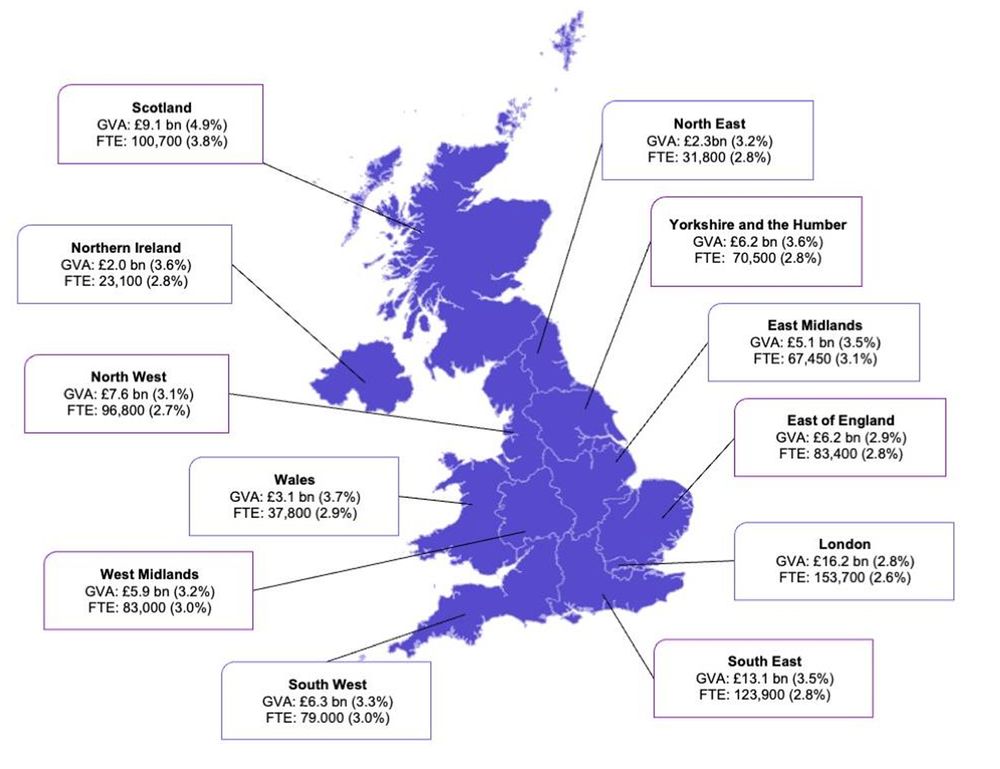Pete Barbrook-Johnson
@bapeterj.bsky.social
Lecturer in Social Economics, UCL + Teaching Associate, ECI, Oxford. Systems mapping, agent-based modelling, systems and complexity methods in social science. Env and energy policy. https://www.barbrookjohnson.com
Applications Now Open
The Oxford Climate Society is delighted to announce that applications for the School of Climate Change (SoCC) are open until Saturday 11 October, midnight (11:59pm UK time)
oxfordclimatesociety.com/school-of-cl...
The Oxford Climate Society is delighted to announce that applications for the School of Climate Change (SoCC) are open until Saturday 11 October, midnight (11:59pm UK time)
oxfordclimatesociety.com/school-of-cl...
School of Climate Change — Oxford Climate Society
oxfordclimatesociety.com
September 22, 2025 at 12:13 PM
Applications Now Open
The Oxford Climate Society is delighted to announce that applications for the School of Climate Change (SoCC) are open until Saturday 11 October, midnight (11:59pm UK time)
oxfordclimatesociety.com/school-of-cl...
The Oxford Climate Society is delighted to announce that applications for the School of Climate Change (SoCC) are open until Saturday 11 October, midnight (11:59pm UK time)
oxfordclimatesociety.com/school-of-cl...
Really excellent article on approaches to AI and the connections between geopolitics and academia...
www.theguardian.com/news/ng-inte...
www.theguardian.com/news/ng-inte...

‘I have to do it’: Why one of the world’s most brilliant AI scientists left the US for China
In 2020, after spending half his life in the US, Song-Chun Zhu took a one-way ticket to China. Now he might hold the key to who wins the global AI race
www.theguardian.com
September 17, 2025 at 12:29 PM
Really excellent article on approaches to AI and the connections between geopolitics and academia...
www.theguardian.com/news/ng-inte...
www.theguardian.com/news/ng-inte...
New @inetoxford.bsky.social working paper from the fantastic Brendon Tankwa.
“Who rides the renewable cost curve? Country evidence on prices, learning, and policy.”
In it, we kick around country-level cost data on solar and wind every which way we could think of!
www.inet.ox.ac.uk/publications...
“Who rides the renewable cost curve? Country evidence on prices, learning, and policy.”
In it, we kick around country-level cost data on solar and wind every which way we could think of!
www.inet.ox.ac.uk/publications...

No. 2025-17 - Who rides the renewable cost curve? Country evidence on…
How fast can every country benefit from renewable cost declines? Using the largest cross-country panel dataset assembled to date, this paper analyzes 34…
www.inet.ox.ac.uk
September 9, 2025 at 12:23 PM
New @inetoxford.bsky.social working paper from the fantastic Brendon Tankwa.
“Who rides the renewable cost curve? Country evidence on prices, learning, and policy.”
In it, we kick around country-level cost data on solar and wind every which way we could think of!
www.inet.ox.ac.uk/publications...
“Who rides the renewable cost curve? Country evidence on prices, learning, and policy.”
In it, we kick around country-level cost data on solar and wind every which way we could think of!
www.inet.ox.ac.uk/publications...
🚨 Warning 🚨: cheesy career news post incoming 🧀 . Apologies in advance!
From mid-September, I am very excited to be joining UCL Arts and Sciences (UASc) as a lecturer in social economics!
@artshumsucl.bsky.social
From mid-September, I am very excited to be joining UCL Arts and Sciences (UASc) as a lecturer in social economics!
@artshumsucl.bsky.social
September 2, 2025 at 8:29 AM
🚨 Warning 🚨: cheesy career news post incoming 🧀 . Apologies in advance!
From mid-September, I am very excited to be joining UCL Arts and Sciences (UASc) as a lecturer in social economics!
@artshumsucl.bsky.social
From mid-September, I am very excited to be joining UCL Arts and Sciences (UASc) as a lecturer in social economics!
@artshumsucl.bsky.social
New open access paper on how to identify and assess positive tipping points to catalyse the low-carbon transition.
This work synthesises a lot of ideas in this space and makes them practical and usable in research and policy work.
Check it out: link.springer.com/article/10.1...
This work synthesises a lot of ideas in this space and makes them practical and usable in research and policy work.
Check it out: link.springer.com/article/10.1...
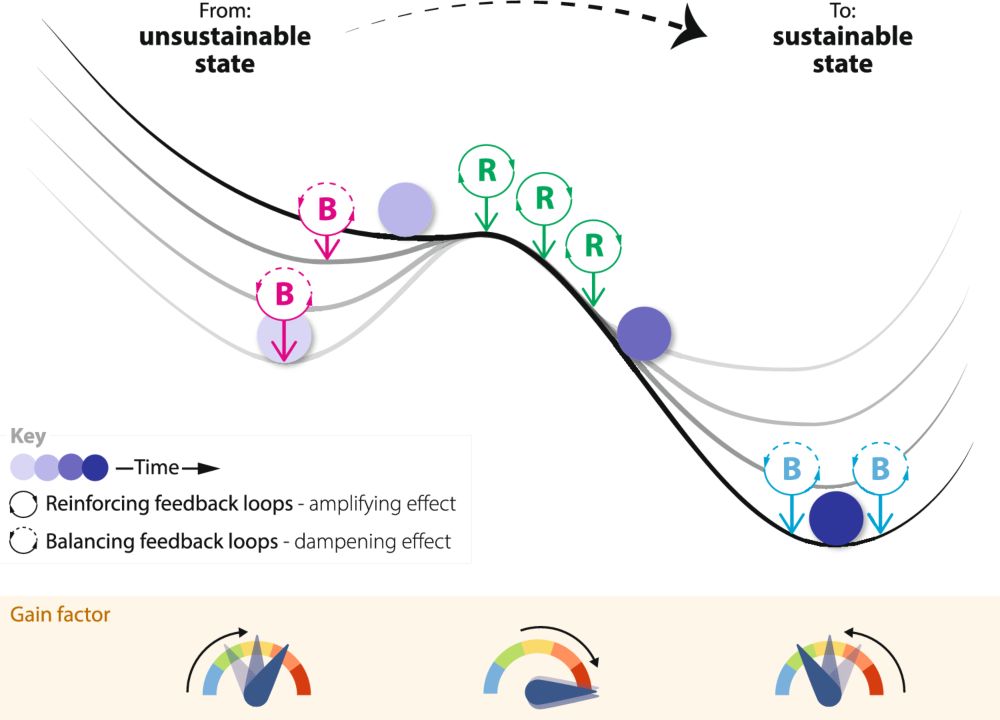
A method to identify positive tipping points to accelerate low-carbon transitions and actions to trigger them - Sustainability Science
Meeting the Paris Agreement to limit global warming to “well below 2 °C” requires a radical acceleration of action, as the global economy is decarbonising at least five times too slowly. Tipping point...
link.springer.com
August 8, 2025 at 11:27 AM
New open access paper on how to identify and assess positive tipping points to catalyse the low-carbon transition.
This work synthesises a lot of ideas in this space and makes them practical and usable in research and policy work.
Check it out: link.springer.com/article/10.1...
This work synthesises a lot of ideas in this space and makes them practical and usable in research and policy work.
Check it out: link.springer.com/article/10.1...
Fed up with economists using inappropriate methods to study climate change and net zero?
Here is a paper for you, "Economic models and frameworks to guide climate policy"!
We speak to governments about what they need, and show which economic methods can deliver.
academic.oup.com/oxrep/advanc...
Here is a paper for you, "Economic models and frameworks to guide climate policy"!
We speak to governments about what they need, and show which economic methods can deliver.
academic.oup.com/oxrep/advanc...
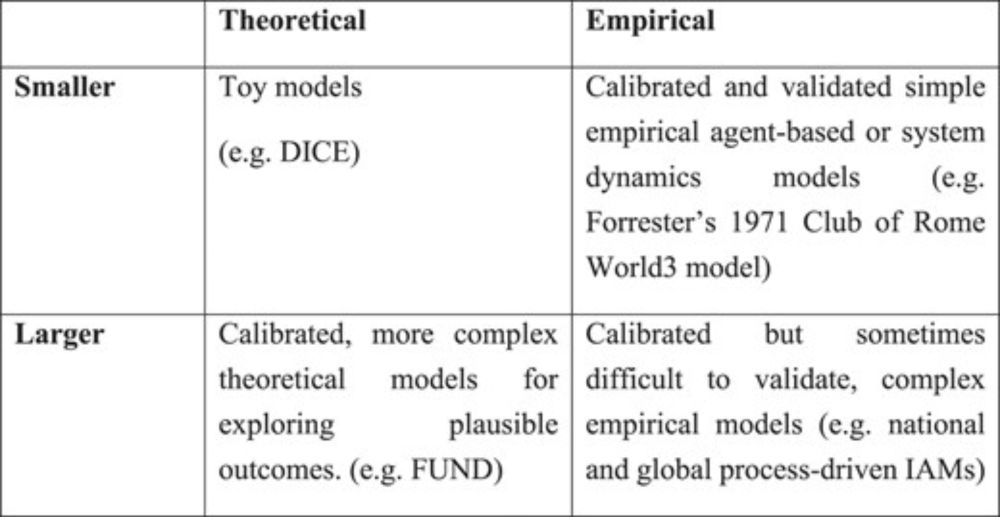
Economic models and frameworks to guide climate policy
Abstract. Reaching net-zero emissions will involve a structural transformation of the global economy. The transition is complicated by deep uncertainty abo
academic.oup.com
July 30, 2025 at 9:50 AM
Fed up with economists using inappropriate methods to study climate change and net zero?
Here is a paper for you, "Economic models and frameworks to guide climate policy"!
We speak to governments about what they need, and show which economic methods can deliver.
academic.oup.com/oxrep/advanc...
Here is a paper for you, "Economic models and frameworks to guide climate policy"!
We speak to governments about what they need, and show which economic methods can deliver.
academic.oup.com/oxrep/advanc...
Reposted by Pete Barbrook-Johnson
Shiny new report on 10 System Archetypes of the energy transition.
Addresses the questions, how can governments manage the transition, given its countless moving parts and complexity? Which actions will be self-amplifying, and which will be self-defeating?
www.scurveeconomics.org/publications...
Addresses the questions, how can governments manage the transition, given its countless moving parts and complexity? Which actions will be self-amplifying, and which will be self-defeating?
www.scurveeconomics.org/publications...
System archetypes of the energy transition | S-Curve Economics
www.scurveeconomics.org
June 6, 2025 at 9:13 AM
Shiny new report on 10 System Archetypes of the energy transition.
Addresses the questions, how can governments manage the transition, given its countless moving parts and complexity? Which actions will be self-amplifying, and which will be self-defeating?
www.scurveeconomics.org/publications...
Addresses the questions, how can governments manage the transition, given its countless moving parts and complexity? Which actions will be self-amplifying, and which will be self-defeating?
www.scurveeconomics.org/publications...
Reposted by Pete Barbrook-Johnson
Why the energy transition is non-linear: Excited to share that an article I co-authored on how feedback loops & non-linear thinking can inform climate policy is now published by the @weforum.org. We dive into why systems thinking is crucial for real climate progress.
www.weforum.org/stories/2025...
www.weforum.org/stories/2025...

How ‘feedback loops’ and ‘non-linear thinking’ can inform climate policy
Climate policy: The global shift towards a clean-energy system goes beyond technology to a transformation of markets, industries and societal behaviour.
www.weforum.org
June 11, 2025 at 10:58 AM
Why the energy transition is non-linear: Excited to share that an article I co-authored on how feedback loops & non-linear thinking can inform climate policy is now published by the @weforum.org. We dive into why systems thinking is crucial for real climate progress.
www.weforum.org/stories/2025...
www.weforum.org/stories/2025...
Shiny new report on 10 System Archetypes of the energy transition.
Addresses the questions, how can governments manage the transition, given its countless moving parts and complexity? Which actions will be self-amplifying, and which will be self-defeating?
www.scurveeconomics.org/publications...
Addresses the questions, how can governments manage the transition, given its countless moving parts and complexity? Which actions will be self-amplifying, and which will be self-defeating?
www.scurveeconomics.org/publications...
System archetypes of the energy transition | S-Curve Economics
www.scurveeconomics.org
June 6, 2025 at 9:13 AM
Shiny new report on 10 System Archetypes of the energy transition.
Addresses the questions, how can governments manage the transition, given its countless moving parts and complexity? Which actions will be self-amplifying, and which will be self-defeating?
www.scurveeconomics.org/publications...
Addresses the questions, how can governments manage the transition, given its countless moving parts and complexity? Which actions will be self-amplifying, and which will be self-defeating?
www.scurveeconomics.org/publications...
Reposted by Pete Barbrook-Johnson
🚨 NEW RESEARCH: The energy transition is more disruptive—and could move much faster—than most people think.
It’s not just about swapping old tech for new.
Shift to clean energy is a complex web of feedback loops, tipping points & surprises.
Our new 📖 👇
www.scurveeconomics.org/publications...
🧵
It’s not just about swapping old tech for new.
Shift to clean energy is a complex web of feedback loops, tipping points & surprises.
Our new 📖 👇
www.scurveeconomics.org/publications...
🧵
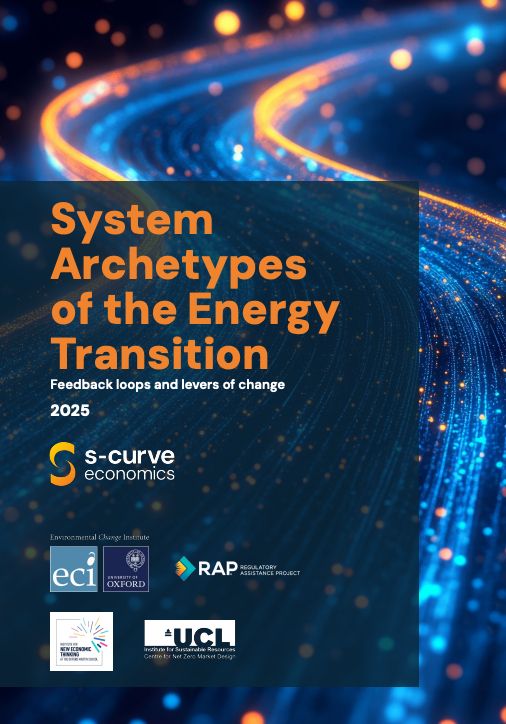
June 5, 2025 at 2:32 PM
🚨 NEW RESEARCH: The energy transition is more disruptive—and could move much faster—than most people think.
It’s not just about swapping old tech for new.
Shift to clean energy is a complex web of feedback loops, tipping points & surprises.
Our new 📖 👇
www.scurveeconomics.org/publications...
🧵
It’s not just about swapping old tech for new.
Shift to clean energy is a complex web of feedback loops, tipping points & surprises.
Our new 📖 👇
www.scurveeconomics.org/publications...
🧵
Reposted by Pete Barbrook-Johnson
The climate movement keeps saying 'stop talking about system change' and inaccessible jargon. Well, if this makes you sad then see 'system' and 'feedback loops' and 'levers' jargon put to excellent use in our new report.
Summary in @carbonbrief.org too
www.carbonbrief.org/guest-post-h...
Summary in @carbonbrief.org too
www.carbonbrief.org/guest-post-h...
June 6, 2025 at 7:21 AM
The climate movement keeps saying 'stop talking about system change' and inaccessible jargon. Well, if this makes you sad then see 'system' and 'feedback loops' and 'levers' jargon put to excellent use in our new report.
Summary in @carbonbrief.org too
www.carbonbrief.org/guest-post-h...
Summary in @carbonbrief.org too
www.carbonbrief.org/guest-post-h...
Reposted by Pete Barbrook-Johnson
Solar hit 700GW in 2020—10x what was forecast in 2006.
Why? Feedback loops & non-linear change, not just tech swaps, drive clean energy.
Our new @carbonbrief.org piece: Early policy support + smart market design + cross-sector links = faster decarbonisation.
www.carbonbrief.org/guest-post-h...
Why? Feedback loops & non-linear change, not just tech swaps, drive clean energy.
Our new @carbonbrief.org piece: Early policy support + smart market design + cross-sector links = faster decarbonisation.
www.carbonbrief.org/guest-post-h...
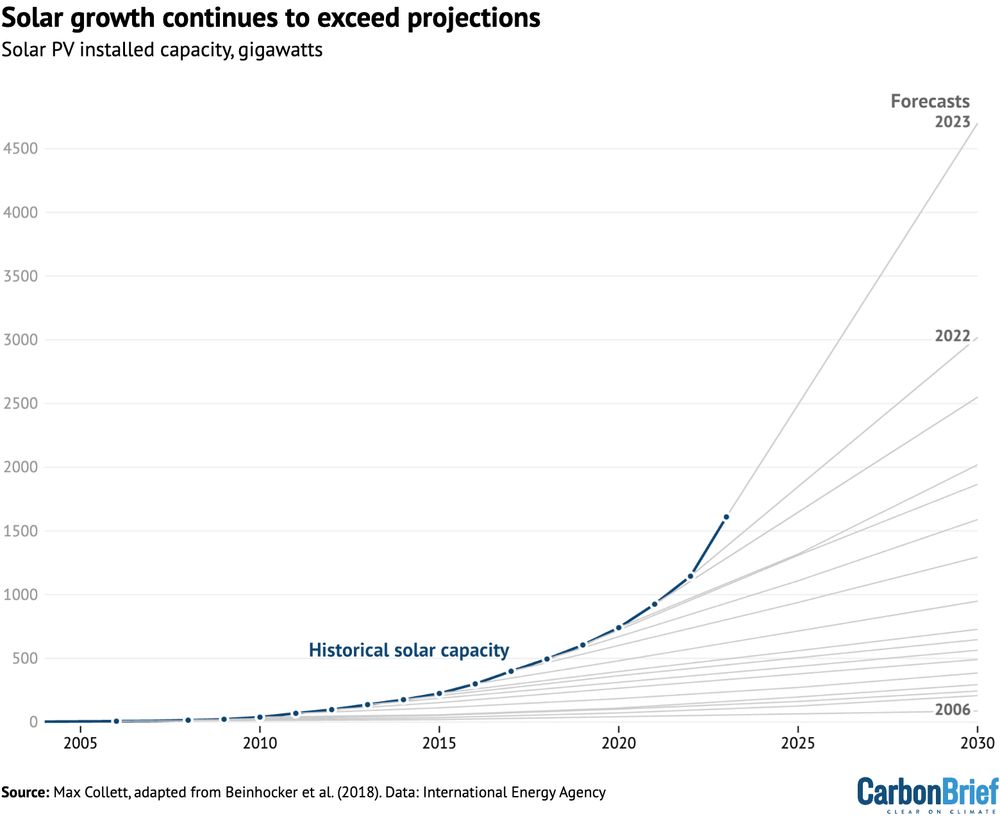
June 6, 2025 at 7:35 AM
Solar hit 700GW in 2020—10x what was forecast in 2006.
Why? Feedback loops & non-linear change, not just tech swaps, drive clean energy.
Our new @carbonbrief.org piece: Early policy support + smart market design + cross-sector links = faster decarbonisation.
www.carbonbrief.org/guest-post-h...
Why? Feedback loops & non-linear change, not just tech swaps, drive clean energy.
Our new @carbonbrief.org piece: Early policy support + smart market design + cross-sector links = faster decarbonisation.
www.carbonbrief.org/guest-post-h...
New revamped @cecan.bsky.social fellowship scheme!
www.cecan.ac.uk/cecan-fellow...
1) Interact with our team of experts on policy evaluation and analysis, systems thinking and complexity.
2) Work on mini-project related to challenges in your work.
Open to anyone working in these areas!
www.cecan.ac.uk/cecan-fellow...
1) Interact with our team of experts on policy evaluation and analysis, systems thinking and complexity.
2) Work on mini-project related to challenges in your work.
Open to anyone working in these areas!

CECAN Fellowships - CECAN
CECAN has established a Fellowship Scheme for those who wish to participate and contribute to its work. The scheme provides opportunities for those from Government and business to forge useful and las...
www.cecan.ac.uk
May 1, 2025 at 9:46 AM
New revamped @cecan.bsky.social fellowship scheme!
www.cecan.ac.uk/cecan-fellow...
1) Interact with our team of experts on policy evaluation and analysis, systems thinking and complexity.
2) Work on mini-project related to challenges in your work.
Open to anyone working in these areas!
www.cecan.ac.uk/cecan-fellow...
1) Interact with our team of experts on policy evaluation and analysis, systems thinking and complexity.
2) Work on mini-project related to challenges in your work.
Open to anyone working in these areas!
Reposted by Pete Barbrook-Johnson
A new working paper from @bapeterj.bsky.social's team develops an approach for using natural language processing in policy analysis.
Yuan Fu & Pete show that NLP workflow is full of subjective judgements and choices
🔗 www.inet.ox.ac.uk/publications...
@inet-complexity.bsky.social
#complexity
Yuan Fu & Pete show that NLP workflow is full of subjective judgements and choices
🔗 www.inet.ox.ac.uk/publications...
@inet-complexity.bsky.social
#complexity
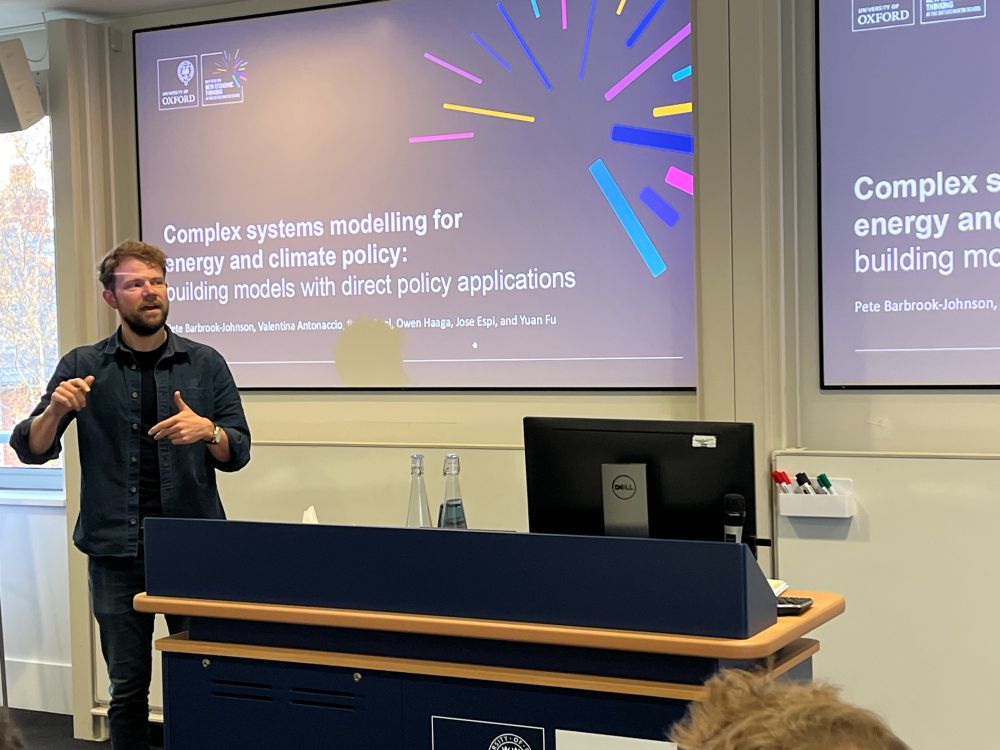
April 8, 2025 at 4:30 PM
A new working paper from @bapeterj.bsky.social's team develops an approach for using natural language processing in policy analysis.
Yuan Fu & Pete show that NLP workflow is full of subjective judgements and choices
🔗 www.inet.ox.ac.uk/publications...
@inet-complexity.bsky.social
#complexity
Yuan Fu & Pete show that NLP workflow is full of subjective judgements and choices
🔗 www.inet.ox.ac.uk/publications...
@inet-complexity.bsky.social
#complexity
🚨 New working paper - geeking out on systems mapping 🤓
*Using natural language processing to create prelim system maps*
www.inet.ox.ac.uk/publications...
*Using natural language processing to create prelim system maps*
www.inet.ox.ac.uk/publications...

2025-09 - Using NLP to create preliminary causal system maps for use…
The use of causal systems mapping in interdisciplinary and policy research has increased in recent years. Causal system maps typically rely on stakeholder…
www.inet.ox.ac.uk
April 8, 2025 at 3:58 PM
🚨 New working paper - geeking out on systems mapping 🤓
*Using natural language processing to create prelim system maps*
www.inet.ox.ac.uk/publications...
*Using natural language processing to create prelim system maps*
www.inet.ox.ac.uk/publications...
New guidance on using LLMs to support systems mapping exercises.
LLMs can be a useful tool, but only as a complement to a wider exercise. The won't do your systems thinking for you!
www.cecan.ac.uk/wp-content/u...
LLMs can be a useful tool, but only as a complement to a wider exercise. The won't do your systems thinking for you!
www.cecan.ac.uk/wp-content/u...
www.cecan.ac.uk
April 8, 2025 at 3:56 PM
New guidance on using LLMs to support systems mapping exercises.
LLMs can be a useful tool, but only as a complement to a wider exercise. The won't do your systems thinking for you!
www.cecan.ac.uk/wp-content/u...
LLMs can be a useful tool, but only as a complement to a wider exercise. The won't do your systems thinking for you!
www.cecan.ac.uk/wp-content/u...
Reposted by Pete Barbrook-Johnson
THREAD: How the Sun screwed up its "smoking gun" story on net-zero study
The Sun: "As much as 10% wld be wiped off economic growth by end of decade"
Source: "At no point does this study suggest there will be a drop in UK GDP. It talks abt a 10% transfer…within GDP"
Oops!
1/10
The Sun: "As much as 10% wld be wiped off economic growth by end of decade"
Source: "At no point does this study suggest there will be a drop in UK GDP. It talks abt a 10% transfer…within GDP"
Oops!
1/10

March 20, 2025 at 9:25 PM
THREAD: How the Sun screwed up its "smoking gun" story on net-zero study
The Sun: "As much as 10% wld be wiped off economic growth by end of decade"
Source: "At no point does this study suggest there will be a drop in UK GDP. It talks abt a 10% transfer…within GDP"
Oops!
1/10
The Sun: "As much as 10% wld be wiped off economic growth by end of decade"
Source: "At no point does this study suggest there will be a drop in UK GDP. It talks abt a 10% transfer…within GDP"
Oops!
1/10
Reposted by Pete Barbrook-Johnson
The latest paper from @bapeterj.bsky.social with Domenica Cox and Alexandra Penn examines systems thinking in UK environmental policy making
www.inet.ox.ac.uk/publications...
www.inet.ox.ac.uk/publications...

No. 2025-06 - Systems thinking in UK environmental policy making
In recent years, there has been a marked rise in the use of systems thinking approaches in UK policy making institutions, especially in environmental…
www.inet.ox.ac.uk
March 20, 2025 at 10:54 AM
The latest paper from @bapeterj.bsky.social with Domenica Cox and Alexandra Penn examines systems thinking in UK environmental policy making
www.inet.ox.ac.uk/publications...
www.inet.ox.ac.uk/publications...
New working paper! 🚨
Systems thinking in UK environmental policy
There has been a big uptick in the use of systems thinking in UK gov working on environmental and energy policy…we take a look at what’s going on!
Feedback welcome!
www.inet.ox.ac.uk/publications...
Systems thinking in UK environmental policy
There has been a big uptick in the use of systems thinking in UK gov working on environmental and energy policy…we take a look at what’s going on!
Feedback welcome!
www.inet.ox.ac.uk/publications...

No. 2025-06 - Systems thinking in UK environmental policy making
In recent years, there has been a marked rise in the use of systems thinking approaches in UK policy making institutions, especially in environmental…
www.inet.ox.ac.uk
March 19, 2025 at 5:48 PM
New working paper! 🚨
Systems thinking in UK environmental policy
There has been a big uptick in the use of systems thinking in UK gov working on environmental and energy policy…we take a look at what’s going on!
Feedback welcome!
www.inet.ox.ac.uk/publications...
Systems thinking in UK environmental policy
There has been a big uptick in the use of systems thinking in UK gov working on environmental and energy policy…we take a look at what’s going on!
Feedback welcome!
www.inet.ox.ac.uk/publications...
Reposted by Pete Barbrook-Johnson
UK net zero by 2050: technically & economically feasible
✅ 6️⃣5️⃣% of all Brits support the net zero target (22% oppose)
✅ Clear majority see renewables & clean tech as top growth sector
✅ 🇬🇧 net zero economy 📈 by 10% in 2024
✅ Global momentum only going in one direction
buff.ly/7Gm9c1F
✅ 6️⃣5️⃣% of all Brits support the net zero target (22% oppose)
✅ Clear majority see renewables & clean tech as top growth sector
✅ 🇬🇧 net zero economy 📈 by 10% in 2024
✅ Global momentum only going in one direction
buff.ly/7Gm9c1F
March 17, 2025 at 10:30 PM
UK net zero by 2050: technically & economically feasible
✅ 6️⃣5️⃣% of all Brits support the net zero target (22% oppose)
✅ Clear majority see renewables & clean tech as top growth sector
✅ 🇬🇧 net zero economy 📈 by 10% in 2024
✅ Global momentum only going in one direction
buff.ly/7Gm9c1F
✅ 6️⃣5️⃣% of all Brits support the net zero target (22% oppose)
✅ Clear majority see renewables & clean tech as top growth sector
✅ 🇬🇧 net zero economy 📈 by 10% in 2024
✅ Global momentum only going in one direction
buff.ly/7Gm9c1F
Reposted by Pete Barbrook-Johnson
In Nature Climate Change, @chrisbataille.bsky.social and I describe three common situations when energy/economic models are detrimental to climate policymaking efforts 🧵
rdcu.be/ecSMX
rdcu.be/ecSMX
Avoiding misuses of energy-economic modelling in climate policymaking
Nature Climate Change - Energy-economic models are increasingly being used to inform climate mitigation policies. This Comment describes three situations where models misinform policymakers and...
rdcu.be
March 11, 2025 at 3:00 PM
In Nature Climate Change, @chrisbataille.bsky.social and I describe three common situations when energy/economic models are detrimental to climate policymaking efforts 🧵
rdcu.be/ecSMX
rdcu.be/ecSMX
Reposted by Pete Barbrook-Johnson
The superpower of solar/storage is that it can be built very quickly. It's also cheap.
electrek.co/2025/03/10/s...
electrek.co/2025/03/10/s...
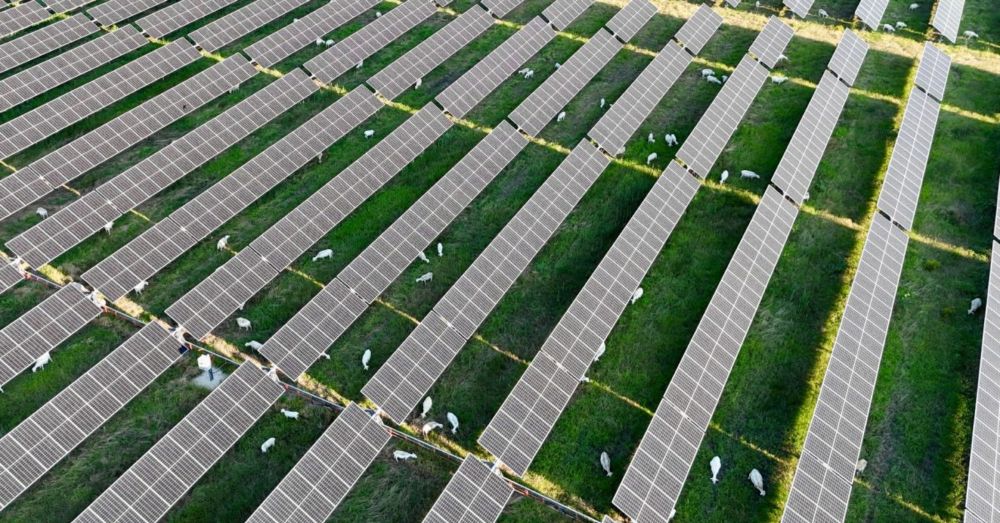
Solar adds more new capacity to the US grid in 2024 than any energy source in 20 years
The US installed 50 GW of new solar capacity in 2024, the most new capacity added in a single year of any energy technology in over two decades.
electrek.co
March 12, 2025 at 2:08 PM
The superpower of solar/storage is that it can be built very quickly. It's also cheap.
electrek.co/2025/03/10/s...
electrek.co/2025/03/10/s...



